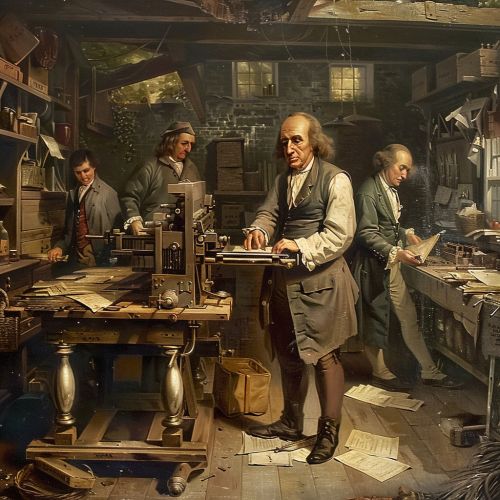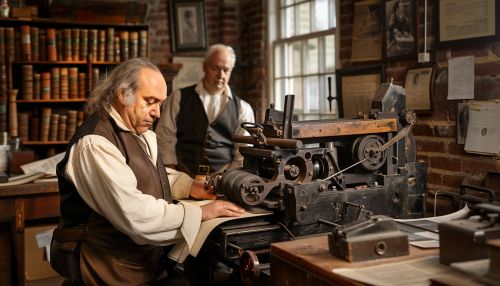The Autobiography of Benjamin Franklin
Early Life and Background
Benjamin Franklin was born on January 17, 1706, in Boston, Massachusetts Bay Colony. He was the tenth son of Josiah Franklin, a tallow chandler, and his second wife, Abiah Folger. Franklin's early education was limited and he was largely self-taught. He apprenticed under his brother James, a printer, which provided him with access to a wealth of books and the opportunity to develop his writing skills.
The Autobiography
"The Autobiography of Benjamin Franklin" is a seminal work in American literature. It was written in four parts over an extended period, with the first part composed in 1771 and the last in 1789. The autobiography is not only a personal narrative but also a reflection on Franklin's views on self-improvement, industry, and civic responsibility.
Part One: Early Life and Apprenticeship
In the first part of his autobiography, Franklin recounts his early years, including his apprenticeship in his brother's print shop. This section provides insights into his formative experiences, such as his voracious reading habits and his early attempts at writing. Franklin also describes his first ventures into publishing, including the creation of the "Silence Dogood" letters, which he submitted anonymously to his brother's newspaper.
Part Two: Journey to Philadelphia
The second part of the autobiography details Franklin's journey to Philadelphia, where he sought to establish himself as a printer. This section highlights his entrepreneurial spirit and his ability to network with influential figures. Franklin's arrival in Philadelphia marked the beginning of his rise to prominence in the printing industry and his involvement in civic activities.


Part Three: Public Life and Civic Contributions
In the third part, Franklin discusses his public life and contributions to society. He describes his role in founding institutions such as the Library Company of Philadelphia, the American Philosophical Society, and the University of Pennsylvania. Franklin also elaborates on his scientific experiments, including his famous kite experiment that demonstrated the electrical nature of lightning.
Part Four: Reflections and Later Years
The final part of the autobiography is more reflective, with Franklin offering advice on various aspects of life, including frugality, industry, and humility. He also discusses his diplomatic missions to Europe and his role in the American Revolution. This section provides a comprehensive overview of Franklin's later years and his enduring legacy.
Themes and Analysis
"The Autobiography of Benjamin Franklin" is notable for its exploration of themes such as self-improvement, education, and civic duty. Franklin's emphasis on practical wisdom and moral virtues reflects the Enlightenment ideals that influenced his thinking. The autobiography also serves as a testament to the American Dream, illustrating how an individual of humble origins can achieve greatness through hard work and perseverance.
Influence and Legacy
Franklin's autobiography has had a profound impact on American literature and culture. It has been widely read and studied for its insights into the life and mind of one of America's founding fathers. The work has inspired countless readers to pursue self-improvement and civic engagement. Franklin's emphasis on education and public service continues to resonate in contemporary society.
